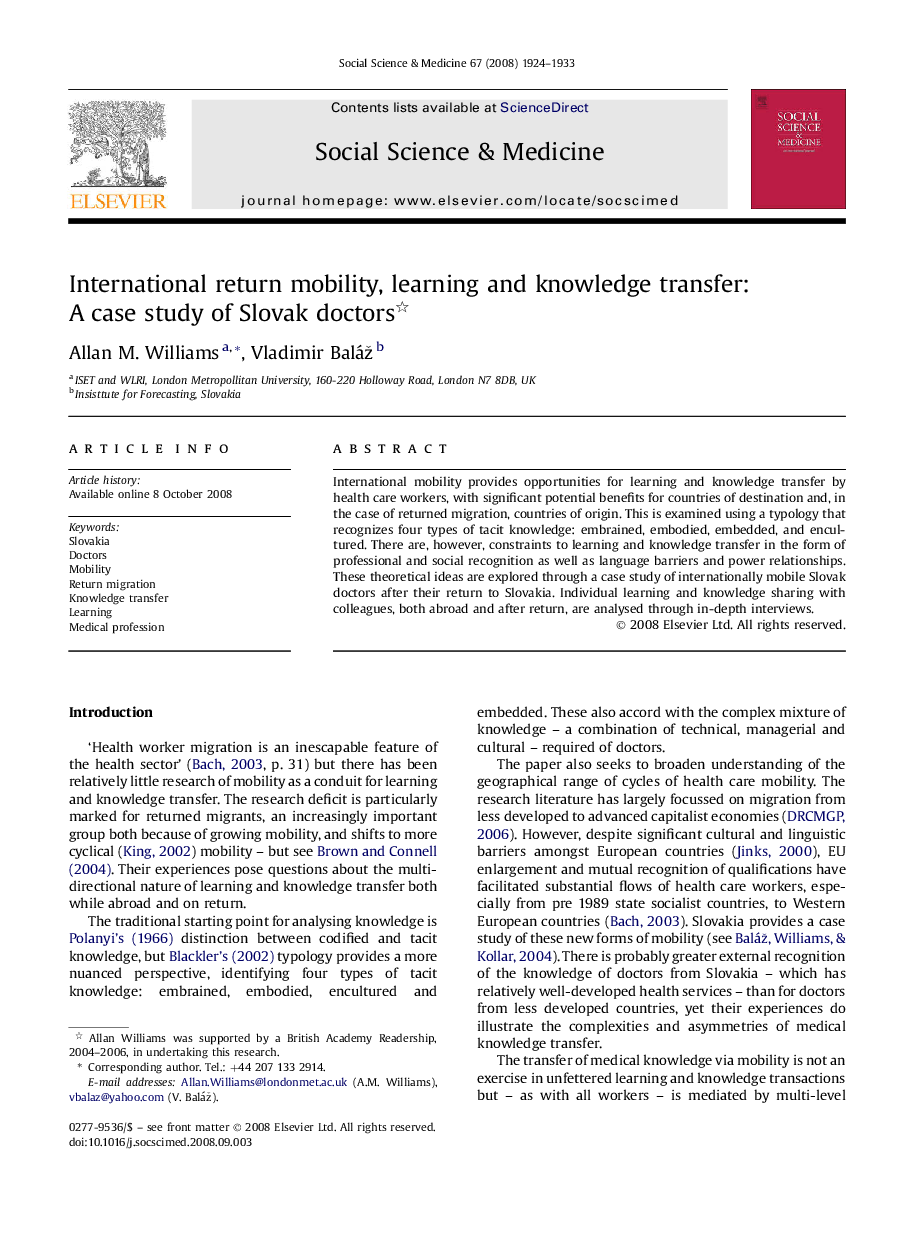| Article ID | Journal | Published Year | Pages | File Type |
|---|---|---|---|---|
| 953527 | Social Science & Medicine | 2008 | 10 Pages |
International mobility provides opportunities for learning and knowledge transfer by health care workers, with significant potential benefits for countries of destination and, in the case of returned migration, countries of origin. This is examined using a typology that recognizes four types of tacit knowledge: embrained, embodied, embedded, and encultured. There are, however, constraints to learning and knowledge transfer in the form of professional and social recognition as well as language barriers and power relationships. These theoretical ideas are explored through a case study of internationally mobile Slovak doctors after their return to Slovakia. Individual learning and knowledge sharing with colleagues, both abroad and after return, are analysed through in-depth interviews.
